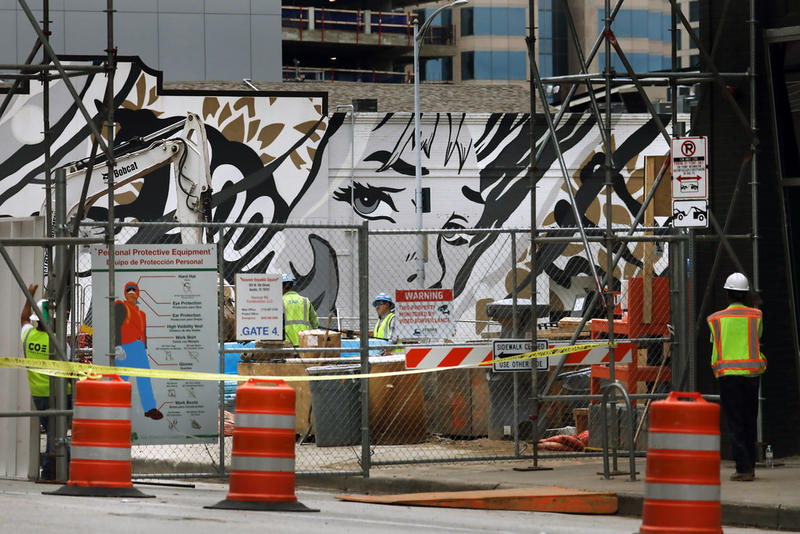FOR IMMEDIATE RELEASE – December 7, 2020
CONTACT: Sarah Eliason, seliason@law.utexas.edu.
MEDIA ADVISORY
What’s behind the disproportionate COVID-19 risk experienced by Latinx construction workers in the Austin region? New report identifies political and legal drivers.
The Bernard and Audre Rapoport Center for Human Rights and Justice at the University of Texas at Austin released a report titled “COVID-19, Structural Inequality, and the Past and Future of Low-Income Latinx Construction Workers in Austin, Texas.” The report puts into legal and political context the disproportionate COVID-19 risk experienced by Latinx construction workers.
Austin, Texas is the fastest growing major metropolitan area in the country. It is home to over 69,000 construction workers, many of whom earn low wages and are Latinx. On March 31, 2020, Texas Governor Greg Abbot issued an executive order making construction work “essential.” That order superseded local stay-at-home orders by the City of Austin and Travis County that had only exempted construction for some limited projects. An October 2020 epidemiological study demonstrates that state’s decision to allow unrestricted construction work was associated with construction workers in Austin being five-times more likely to be hospitalized for COVID-19 than other workers in the region.
This reversal of Austin’s shutdown orders is merely the most recent example of the ways in which the city has long been hamstrung in its efforts to fight racial injustice, particularly on behalf of low-income Latinx, often undocumented, workers. Specifically, the state of Texas has used legal preemption to thwart the city’s efforts to mandate a local minimum-wage, require that employers provide paid sick leave, implement sanctuary city policies, and prohibit certain affordable housing policy tools.
The unequal impact of COVID-19 on the Latinx population in Austin, exacerbated by the ineligibility of many for federal stimulus benefits, prompted the city to institute a suite of local emergency relief policies. But even with this relief, the Rapoport Center report finds that state preemption of local ordinances, federal immigration law, and lack of significant social provisioning have combined with regional urban growth politics in the Austin region to drive unequal health and economic consequences for low-income Latinx construction workers, especially but not only in relation to COVID-19. It demonstrates the need for explicit discussion of this latter driver, with attention to how worker vulnerability is entangled with the promotion of growth by local entities, which recruit new businesses using the region’s progressive identity alongside public subsidies based in the area’s low cost of living, light-touch regulation, and tax incentives. It recommends that large corporate players that benefit from the Austin region’s economy and identity be made to carry a greater share of the total costs necessary to sustain public investment in broad urban-regional infrastructure for all classes of workers.
The report includes interview responses from Latinx construction workers in the Austin region, which were made possible through collaboration with the Workers Defense Project.


